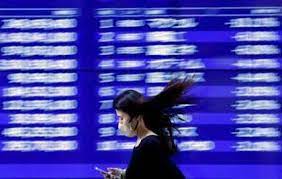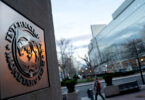PARIS (AFP): Asian and European stock markets wobbled Monday after President Joe Biden and House Speaker Kevin McCarthy reached a deal on lifting the US debt ceiling to avoid a disastrous default.
Among major Asian markets, Tokyo and Shanghai finished in the green but Hong Kong was unable to maintain their early gains and turned lower.
Paris and Frankfurt rose at the open but were down in early afternoon deals. Wall Street and London were closed for a holiday.
After weeks of wrangling, the two announced that an agreement had finally been reached and urged lawmakers on both sides of the aisle to vote for it before the government runs out of cash on June 5.
However, there is some nervousness on trading floors as the bill contains plenty of elements that are likely to anger Democrats and Republicans alike.
“We should not expect a smooth passage,” said Clifford Bennett, chief economist at ACY Securities. “There is a slight risk of this being a giant case of the devil in the details.”
“A default can most probably be avoided at this stage. Such default avoidance is still not a complete certainty; however it is now much less of a risk,” Bennett added.
The breakthrough lifts the threat of a debt default by the US that economists warn could hammer the global economy and cause market turmoil.
The bill will suspend the debt ceiling until January 1, 2025, and place curbs on federal spending that will please some Republicans, but it does not deliver the big cuts right-wingers wanted and progressive Democrats would have balked at.
“The agreement prevents the worst possible crisis,” Biden said at the White House on Sunday. “I strongly urge both chambers to pass that agreement.”
“The obvious positive interpretation is that a negative tail risk is close to being taken off the table,” said Dan Suzuki of Richard Bernstein Advisors.
“With the distraction of the debt ceiling fading into the background, investors can now refocus their attention on the underlying fundamentals. One concern, though, is that the fundamental picture remains precarious.”
Data on Friday showed the US Federal Reserve’s preferred measure of inflation — the personal consumption expenditures (PCE) index — rose 4.4 percent year-on-year in April, up from 4.2 percent a month earlier.
The core index, excluding volatile food and energy prices, also rose, as did personal income and spending.
The figures will put fresh pressure on the central bank to continue lifting interest rates to bring inflation under control and deal a blow to hopes it will pause next month after more than a year of hikes.
Elsewhere, the Turkish lira weakened to 20.08 per dollar after President Recep Tayyip Erdogan won another term in office to extend his two-decade rule.
Morgan Stanley warned the currency could suffer further pain, tipping it to hit 28 if Erdogan sticks to his ultra-loose monetary policy despite rampant inflation, which is sitting at more than 40 percent.







